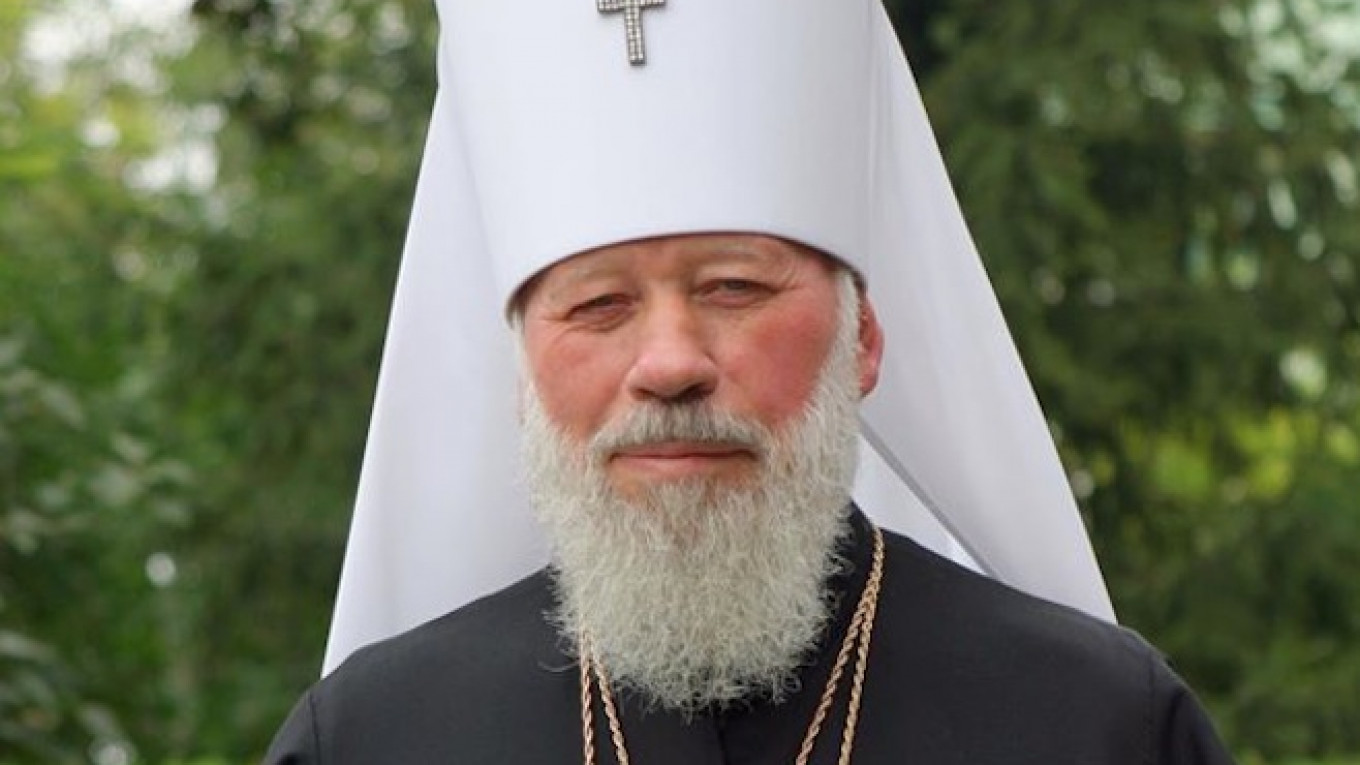The head of Ukraine's Orthodox Church has died at 78 after leading it for more than two decades during the tumultuous post-Soviet period.
Metropolitan Volodymyr, who had been credited with stabilizing the church, died Saturday "after a long illness," the church announced online Saturday. Recently, Volodymyr often reflected pro-Russian opinions in Ukraine, as battles raged between government troops and separatist insurgents in the east of the country.
President Vladimir Putin expressed his condolences to Patriarch Kirill, leader of the Russian Orthodox Church. The Ukrainian Orthodox Church falls within the jurisdiction of the Moscow Patriarchate.
"We will forever remember the many years of Metropolitan Vladimir's hard work, his devoted pastorship, his great personal contribution to strengthening Russian-Ukrainian friendship and his talent as a preacher, which won him deep gratitude and respect on the part of the people of Russia and Ukraine," Putin said in a statement released Saturday.
In his more than 20 years as head of the country's largest church, Volodymyr weathered the breakaway of two groups that declared themselves independent of the Moscow Patriarchate, which incorporates the Ukrainian church. Observers say he succeeded in preventing even more splits.
"He will go down in history as the savior of the Ukrainian Orthodoxy during a very difficult historical moment, as the preserver of the Russian and Ukrainian Orthodoxy," said Andrei Zolotov, a Russian journalist and expert on Orthodoxy.
Born Viktor Sabodan to a family of farmers in western Ukraine in 1935, Volodymyr studied at seminaries in Odessa and Leningrad, was ordained at 26 and took monastic vows soon thereafter.
Orthodox priests are allowed to marry, but that limits their career paths.
He served briefly in Russian Orthodox Church missions in Jerusalem and Geneva, then as a bishop in Russia and Ukraine, both of which were then a part of the Soviet Union. In 1973 he was appointed the rector of the Moscow Theological Academy and Seminary and promoted to the rank of Archbishop of the Moscow Diocese. He later became a senior administrator at the Moscow Patriarchate.
[MT, AP]
A Message from The Moscow Times:
Dear readers,
We are facing unprecedented challenges. Russia's Prosecutor General's Office has designated The Moscow Times as an "undesirable" organization, criminalizing our work and putting our staff at risk of prosecution. This follows our earlier unjust labeling as a "foreign agent."
These actions are direct attempts to silence independent journalism in Russia. The authorities claim our work "discredits the decisions of the Russian leadership." We see things differently: we strive to provide accurate, unbiased reporting on Russia.
We, the journalists of The Moscow Times, refuse to be silenced. But to continue our work, we need your help.
Your support, no matter how small, makes a world of difference. If you can, please support us monthly starting from just $2. It's quick to set up, and every contribution makes a significant impact.
By supporting The Moscow Times, you're defending open, independent journalism in the face of repression. Thank you for standing with us.
Remind me later.






